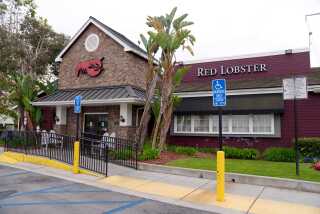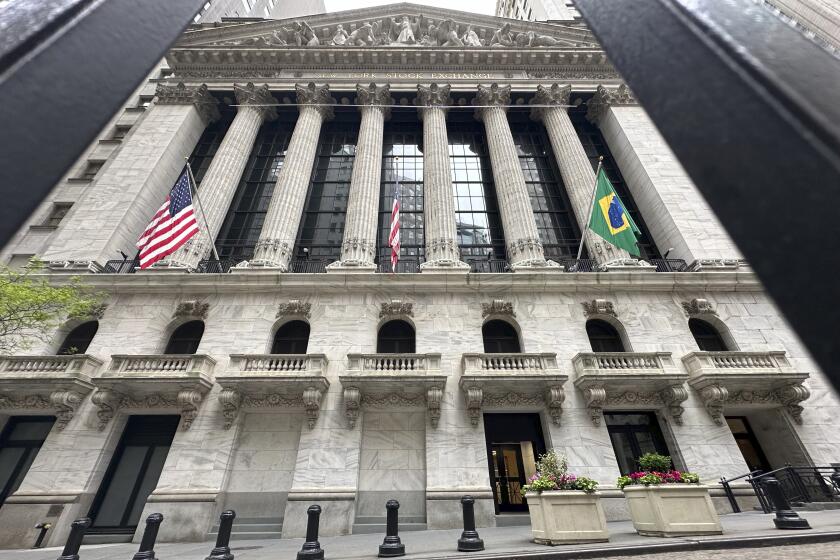Edison International Sees Lower Profit for 2003 on Trading Unit Performance
Edison International’s 2003 earnings are expected to decline, the company said Monday, because of poor performance at its energy-trading subsidiary.
Per-share earnings will range from $1.40 to $1.60, down from projected 2002 operating earnings of $1.80 to $1.90, the company said. Even so, executives still hope the Rosemead-based utility holding company will resume paying a common stock dividend by the end of 2003.
The expected earnings slump at Edison International, parent of the Southern California Edison utility, primarily reflects poor performance by Edison Mission Energy, an unregulated subsidiary that owns power plants and trades energy, Edison executives said in a conference call with investors and analysts.
Like other energy merchants, Edison Mission Energy has been struggling for months with low power prices, high debt and tight credit.
Edison executives also said earnings probably would decline because certain extraordinary gains from various regulatory decisions, such as historic performance rewards received in 2002, are not expected to repeat.
Edison had warned investors this month that 2003 earnings would be lower than the improved results expected for 2002. Nonetheless, Edison shares slipped 57 cents to $11.23 on the New York Stock Exchange on Monday, down 4.8%.
Edison International Chief Executive John E. Bryson said the company is working to return its main subsidiary, Southern California Edison, to financial strength as the state of California gets out of the power-buying business. Southern California Edison is required by law to resume buying power Jan. 1.
In addition, the company said it may be able to pay off its energy crisis power debts under a settlement with the California Public Utilities Commission sooner than the expected 2003 year-end target. Edison collects rates that are higher than the cost of electricity and thus has paid $2.9 billion of its debt load, leaving $718 million to be collected as of Oct. 31.
Edison hopes to resume paying a dividend to shareholders by the end of next year, Bryson said. In late 2000, as it began to run out of cash because of record electricity prices, Edison suspended its common stock dividend -- then paying at a quarterly rate of 28 cents a share.
“Restoring the dividend is as important to regaining access to equity markets as an investment-grade credit rating is to access to the debt markets,” Bryson said.
As part of its October 2001 settlement with the state, which is being challenged in court by consumer advocates, Edison agreed to refrain from paying a dividend on its common stock until its power debts are paid.
Southern California Edison next year is expected to earn $1.93 a share compared with projected earnings of $2.20 a share for 2002, according to Edison International’s chief financial officer, Theodore F. Craver Jr. Reflecting volatility in the energy merchant sector, Edison Mission Energy could lose as much as 10 cents a share or earn as much as 10 cents a share, he said.
In a separate action that underscored the earnings guidance, Standard & Poor’s Ratings Services announced a three-notch downgrade of Edison Mission Energy debt, pushing the credit ratings deeper into junk territory and raising the company’s borrowing costs.
S&P; cut the ratings on EME-issued debt and senior unsecured debt to BB-minus, and its preferred debt to B, all with a negative outlook.
The downgrade reflects an upcoming refinancing of $1.7 billion in short-term bank debt combined with EME’s inability to pull cash out of its largest subsidiary because of other credit downgrades, S&P; said.






